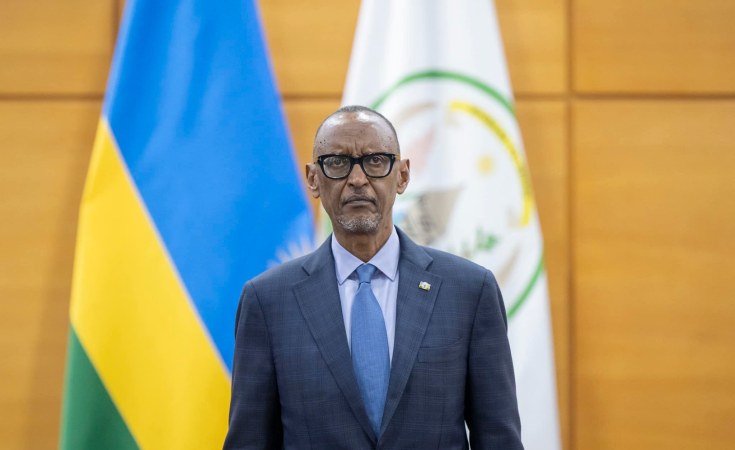The National Electoral Commission (NEC) has introduced measures - including braille ballot papers - to guarantee persons with disabilities' full participation in the electoral process as the country readies for the July 14 - 16 presidential and parliamentary elections.
ALSO READ: What people with disabilities expect from their next representative in parliament
Moise Bukasa, the NEC communications officer, told The New Times that effort was made to make sure the election process is smooth and inclusive for everyone.
ALSO READ: Top 13 campaign pledges candidates have made so far
He said: "To support voters who are visually impaired, for example, NEC prepared braille ballot papers and these will be available for people who can read braille, allowing them to cast their votes independently and confidentially.
"For those who do not know how to use braille, NEC will permit them to bring a child aged 14 to 18 to assist them in voting. This ensures that the person's choices are respected without the influence of someone who might be easily influenced by their own voting preferences, and whose opinions could influence the voter's choice."
Donatille Kanimba, the Executive Director of the Rwanda National Union of the Blind (RNUB), told The New Times that when braille ballot papers were first introduced, in the 2018 elections, they were not available at all polling stations.
This time however, Kanimba is happy that they will be at every polling station.
She said: "Previously, visually impaired people were allowed to come with children to assist them with voting as the only option. However, children can be easily manipulated by other people, potentially altering the vote or revealing the voter's choice. It is good to have another option.
"The secrecy of our votes is very essential for a fair election. The involvement of someone else in our voting process meant there was no full secrecy. Now, visually impaired voters will be guided by volunteers to only locate the braille on the ballot papers, allowing them to cast their votes secretly, just like any other person. This is a significant improvement."
In collaboration with local authorities, NEC also ensured that all polling stations and rooms are easily accessible to people with physical disabilities.
ALSO READ: Exams' body reassures candidates ahead of general elections
"No polling room is in a high-rise building if there is no easy access for persons with disabilities," Bukasa explained.
To assist voters with hearing impairments, he noted, NEC has also made arrangements to have sign language interpreters at all campaign events and polling stations. The sign language interpreters at campaign rallies ensure that people with hearing-impairment can understand the candidates' manifestos and make informed decisions. Such interpreters will be available throughout the election process, providing guidance and support as needed.
In addition to braille ballot papers and sign language interpreters, volunteers will be on hand to assist visually impaired voters through the entire polling process
From entering the polling room to casting their votes, the volunteers will ensure that all voters can navigate the process smoothly and confidently.
"These all-inclusive measures underscore Rwanda's commitment to inclusive elections, ensuring that every citizen, regardless of disability, can exercise their right to vote. With these efforts, NEC aims to foster a fair and equitable electoral process," Bukasa said.
The 13 candidates vying for one seat to represent persons with disabilities in the Chamber of Deputies, the lower house, promised to advocate for inclusivity as well as having an extra seat in parliament so that they can be represented by a man and a woman.


